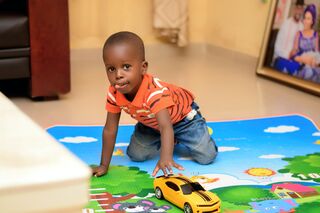Coronavirus Disease 2019
Children Want To Talk About Coronavirus: We Need To Listen
New research shows that kids have ideas about how to handle the crisis.
Posted July 10, 2020 Reviewed by Devon Frye
The coronavirus pandemic has brought unforeseen and stressful changes for all of us. But how is it affecting our children? Experts have raised concerns about the impact of COVID-19 on kids' mental health during lockdowns. Uncertainty about this school year is also a source of stress. But new research shows that children have a lot to say about coronavirus and their own ideas about how to help.

Researchers in early childhood development from a group of universities in Finland wanted to know how children were processing the pandemic. That's because prior research has shown that children are more vulnerable than people realize to major events. Despite the common belief that kids are resilient, negative life experiences and crises can affect children's well-being in both the short and long term. In fact, children may be more vulnerable than adults in important ways.
Given this, it is important to support children's resilience in whatever ways we can. "It is vital to reinforce children's resilience, that is, their capacity to withstand adversities, both during and after a social crisis like the corona pandemic," said Ann-Christin Furu, one of the authors, in a press release. "Previously, it has been shown that supportive relations between adults and children, as well as children's opportunity to participate actively, are significant in this respect."
The researchers wanted to know how kids are processing the coronavirus pandemic. What do they understand about it? How are they expressing their thoughts about it?
To find out, they conducted a survey of teachers and other child care workers at daycares and preschools. The survey revealed that children were expressing themselves in a variety of ways coronavirus, centering around four themes.
The first theme was health: the children actually understood a great deal about the virus and wanted to learn more. They also showed interest in learning how to protect themselves from coronavirus. Secondly, the children expressed worry about their friends, loved ones, or older relatives. They wanted to make sure that everybody was OK.
The third theme for children express themselves about was the changes in their daily life and routine. This makes sense to anyone who lives with young children, because they thrive on routine and that changes can create a great deal of stress. The children actually looked at different ways to cope, showing their desire to be active participants.
But it is the fourth theme that is the most remarkable, and shows the truth of how impressive young children can be. Here the children used play, humor, and creativity as coping tools. "Children are playing, for example, 'corona tag' and 'being at hospital,' or they come up with corona-related drawings, rhymes, or songs of their own," Furu explained.
How Can Adults Support Resilience?
"These expressions can provide the personnel, as well as the parents, with tools to understand what the children are dealing with in the corona situation. It may offer a way to observe one's own group of children, and to create situations where the children can express themselves with regard to the coronavirus," Furu went on.
The researchers concluded that children are not passive in the crisis, but active agents who can contribute. They have ideas on how to handle the situation, and they are ready to share them if we provide the opportunity. The researchers called on both parents and those who work in early childhood education to engage children and help them express their thoughts about coronavirus.
Supporting children this way not only supports their resilience, it just might boost our own.




